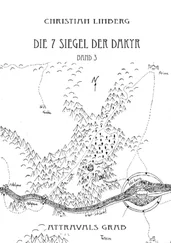“What if I’m completely incompetent?” she said. “I don’t have a degree in this.”
“I’m told it comes naturally.”
“You evidently haven’t read Mother & Baby. ”
“That’s okay. You have,” he said.
“Fine. I’ll stop panicking.”
“Great. Next time I panic and you reassure.”
“Deal.”
“I’m going to take a shower. I feel like I’ve been on a plane for two days.”
“You have been on a plane for two days.”
“See, I knew there was a reason.”
PABLO CAME TWENTY MINUTES EARLY. APPARENTLY, THAT WHOLE mañana thing was an ethnic stereotype without merit.
He knocked on their door, then politely waited outside, even after Joanna had virtually begged him to come inside and sit down.
Paul, who was only half dressed, had to hastily scramble into the rest of his clothes. Black linen pants and a slightly rumpled white shirt he’d neglected to take out of his suitcase. He took quick stock of himself in the mirror and saw pretty much what he expected: a face stuck somewhere between boyishness and creeping middle age, someone who was clearly the sum of his parts, none of which would’ve stood out in a crowd. Well, clothes make the man. He topped off his outfit with his red-striped power tie. After all, he was preparing for the most important meeting of his life.
The Peugeot was softly idling in front of the hotel.
Paul noticed the hotel doorman whisper something in Pablo’s ear as he bent over to usher them into the backseat. A kind of rumba was playing on the radio.
“What did he say?” Paul asked Pablo after he had pulled away from the curb.
“He wished you Many Blessings. ”
“Oh. You told him where we’re going?”
“Yes.”
“Do you do this a lot, Pablo?” Joanna asked. “With many couples?”
Pablo nodded. “ Happy job, no?”
“Sure,” Joanna said. “I think so.”
They passed a convoy of soldiers hunched together in an open made-in-Detroit Jeep. Paul couldn’t help remembering the phalanx of armed sentries at the airport.
“Lots of soldiers around, huh?” Paul said.
“Soldiers? Sí .”
“How have things been?” Paul asked, a little hesitant to ask a question he might not like the answer to.
“Things?”
“The rebels? FARC?” It sounded like a curse, Paul thought. He imagined that to the vast majority of Colombians, it was. The Revolutionary Armed Forces of Colombia. The leftist guerrillas already holding much of the north, and most likely the group responsible for blowing the deputy mayor of Medellín to kingdom come.
Of course, there was always the chance the car bomb had been perpetrated by the right. FARC was embroiled in a long dirty war against the United Self-Defense Forces, or USDF, a rightist paramilitary organization of singular brutality.
On the way out of the airport, they’d passed a wall covered in red graffiti, which looked uncomfortably like fresh arterial spray, as if it had been written in blood.
Libre Manuel Riojas. Manuel Riojas was the reputed USDF commander, currently residing in an American prison for drug transgressions.
Pablo shook his head. “I don’t listen . . . No politics.”
“Yes. That’s probably wise.”
“Sí.”
“Still, it must be scary sometimes?”
“Scary.” Pablo derisively waved a hand. “I mind my business. Don’t read the papers. It’s all bad.”
Before departing, Paul had sent away for a video titled The Colombian Way of Life. After he’d watched the first five minutes, it was painfully obvious it had been created for schoolkids under the age of twelve. The video followed two teenagers, Mauricio and Paula, walking around sunny Bogotá, their intent being to show that there’s more to this modern South American city than coffee, cocaine, and guerrilla violence —or so stated the back blurb.
Pablo was driving them past a street of sprawling mansions. At least Paul assumed there were mansions back there somewhere—you couldn’t actually see them. An unbroken ten-foot-high stucco wall was in the way. Electronic gates periodically announced the demarcation of each new property, their names spelled out in tile mosaics embedded into the wall.
Casa de Flora.
Casa de Playa.
They passed a spotted dog with its ribs showing, urinating against the burnt-orange wall of the Casa de Fuego.
Something was unnerving about the scene. It took Paul a while to understand what it was.
Yes. The lack of people.
Except for several beggars, emaciated-looking women listlessly cradling babies in their laps, there was absolutely no one in view. Not in this neighborhood. They were all tucked out of sight, hidden behind a modern wall of Jericho.
La Calera, Pablo told them when Paul asked what the neighborhood was called.
Then, thankfully, their surroundings began to change.
Some scattered electronic and appliance stores, then small cafeterías advertising empanadas, patatas, and huevos, followed by a glut of news vendors, lotería shops, supermercados, various bustling places of commerce—the whole enchilada. A cacophony of smells wafted in through the half-cracked windows: bus exhaust, flowers, raw fish, newsprint—Paul was tempted to ask Joanna for a full rundown. They were clearly in the midst of the completely normal life of a capital city, just as Miles had promised. And Paul wondered if there was a kind of conscious denial at work here—if there had to be an ostrichlike mentality in a country where deputy mayors had their heads blown off on a regular basis. If Colombians were able to wall off pieces of their conscious mind from the ongoing war, much as they carefully walled off poverty from the upper classes in the La Calera district.
He stopped musing; there was a sign just ahead tucked into a small grove of trees.
Santa Regina Orfanato.
“Here,” Pablo whispered. He pulled into a hidden driveway and stopped the car. A locked gate; a black buzzer set in brass.
Pablo turned off the ignition, got out, and pushed the button. “Pablo,” he said, “Señor y Señora Breidbart.”
The gate swung open ten seconds later. Pablo got back in and methodically started up the car. He drove into an inner courtyard shaded by tall, spindly pines.
“Come on,” Señor Breidbart said when the car stopped again. “Let’s go meet our daughter.”
THREE
Paul couldn’t actually feel his legs.
He knew he had them—he was clearly and unmistakably standing on them, but they felt missing in action. Gone.
A second ago a short mestiza nurse in starched white had shuffled into the room hugging a pink baby blanket to her chest.
Inside this baby blanket, Paul knew, was a baby.
Not just a baby.
His baby.
WHEN THEY’D ENTERED THE STERILE ANTEROOM, THEY WAITED A good twenty minutes for Santa Regina’s director, María Consuelo, to come greet them. It felt longer than the plane flight. Paul stood up, sat down, walked around, looked out the window, sat down, stood up again. He counted the black tiles in the floor pattern, finding a familiar solace in numbers—there were twenty-eight of them. Occasionally, he squeezed Joanna’s hand and offered her wan smiles of encouragement. Finally, María entered the room, a petite earnest-looking woman with jet-black hair wrapped tightly in a bun. She was followed by a small bustling entourage.
She greeted Paul and Joanna by their first names, as if they were old friends who’d come visiting, instead of prospective parents come begging. Then she dutifully introduced the members of her staff—the head nurse, two teachers, and her personal assistant—all of whom shook hands with them before departing in turn. María led them into her office, where they arranged themselves around a small table covered in neatly stacked piles of magazines, and then spent another twenty minutes sipping bitter coffee—brought in by a somber teenage girl—and making generally awkward small talk.
Читать дальше












